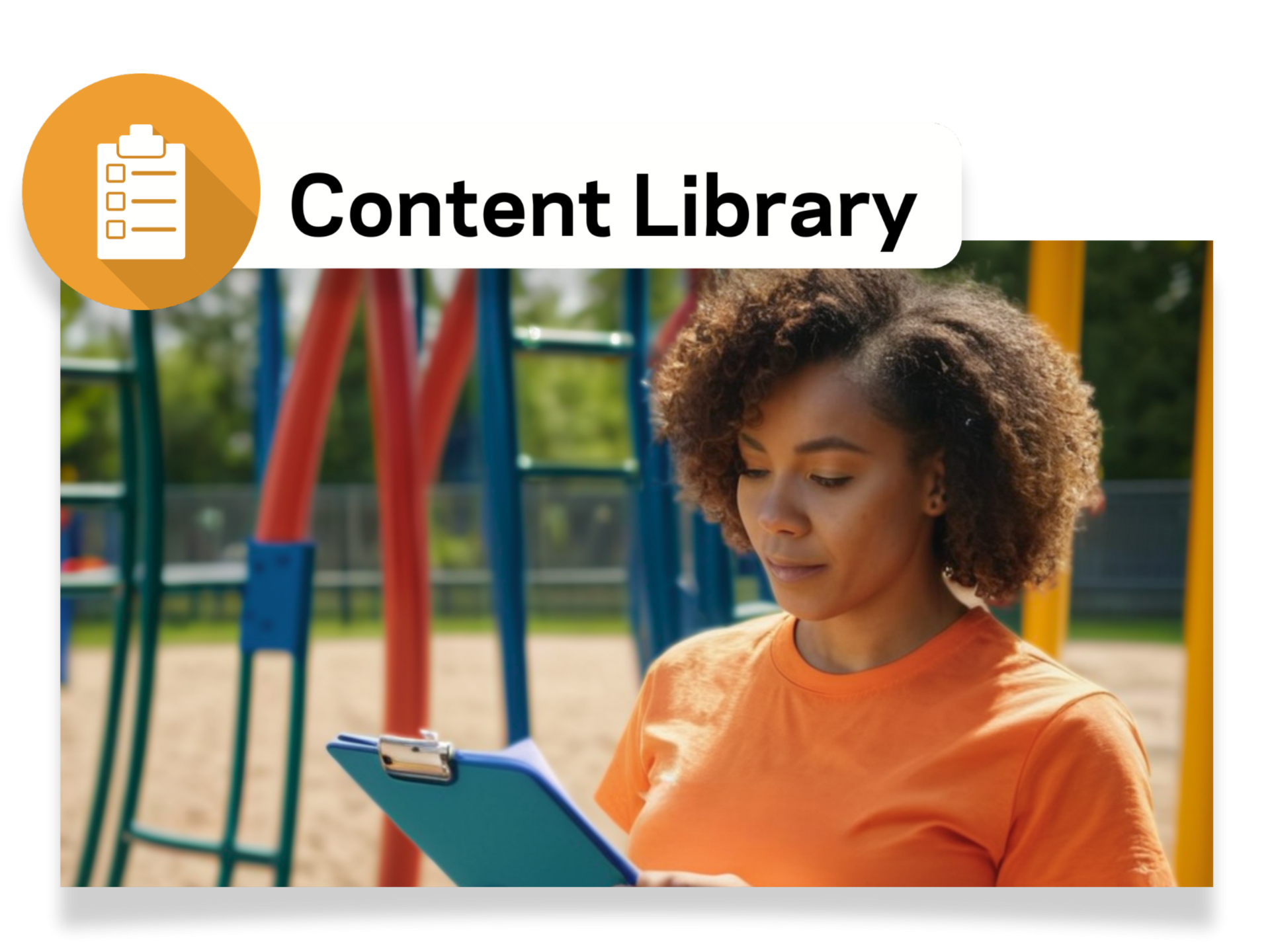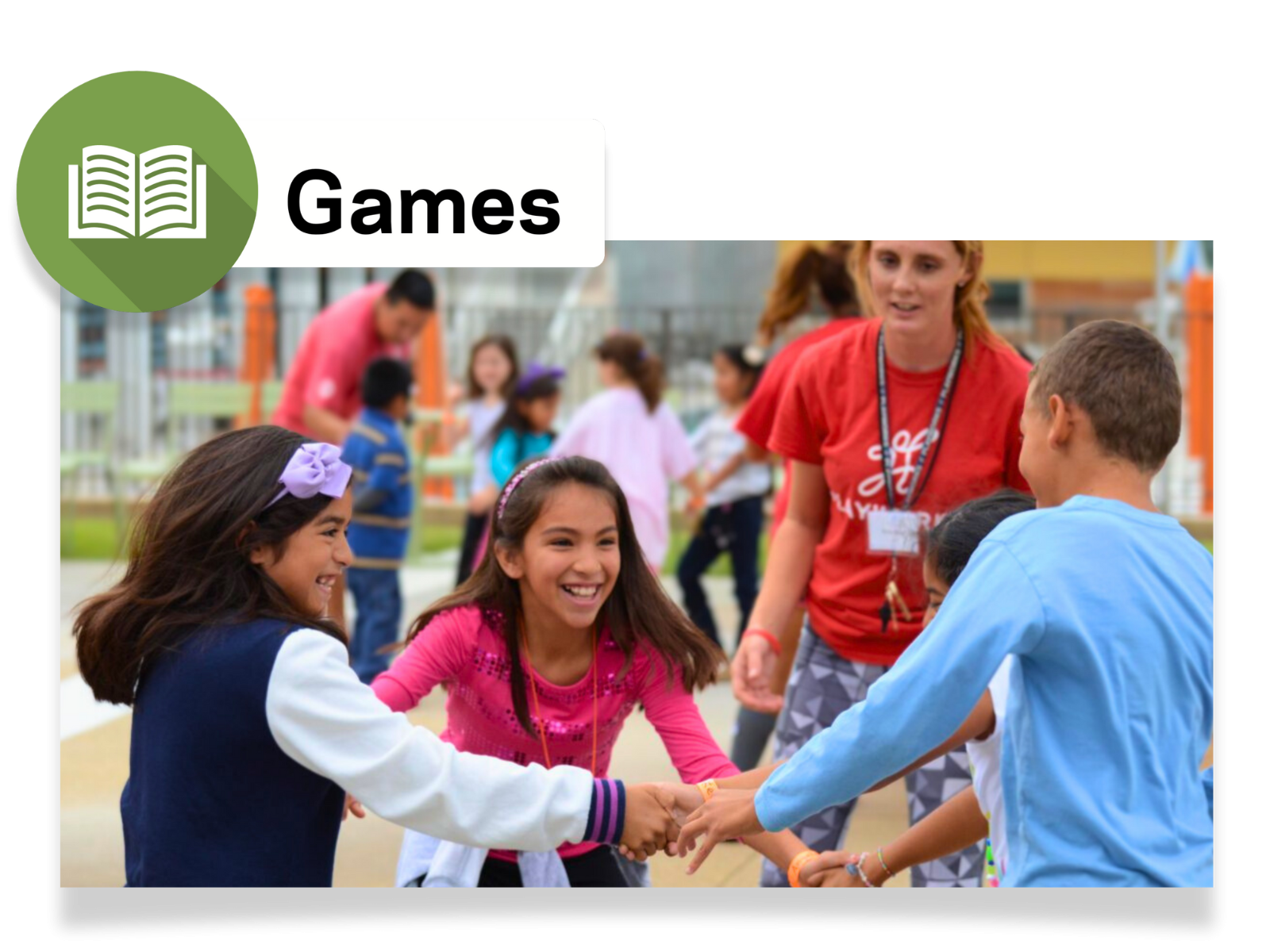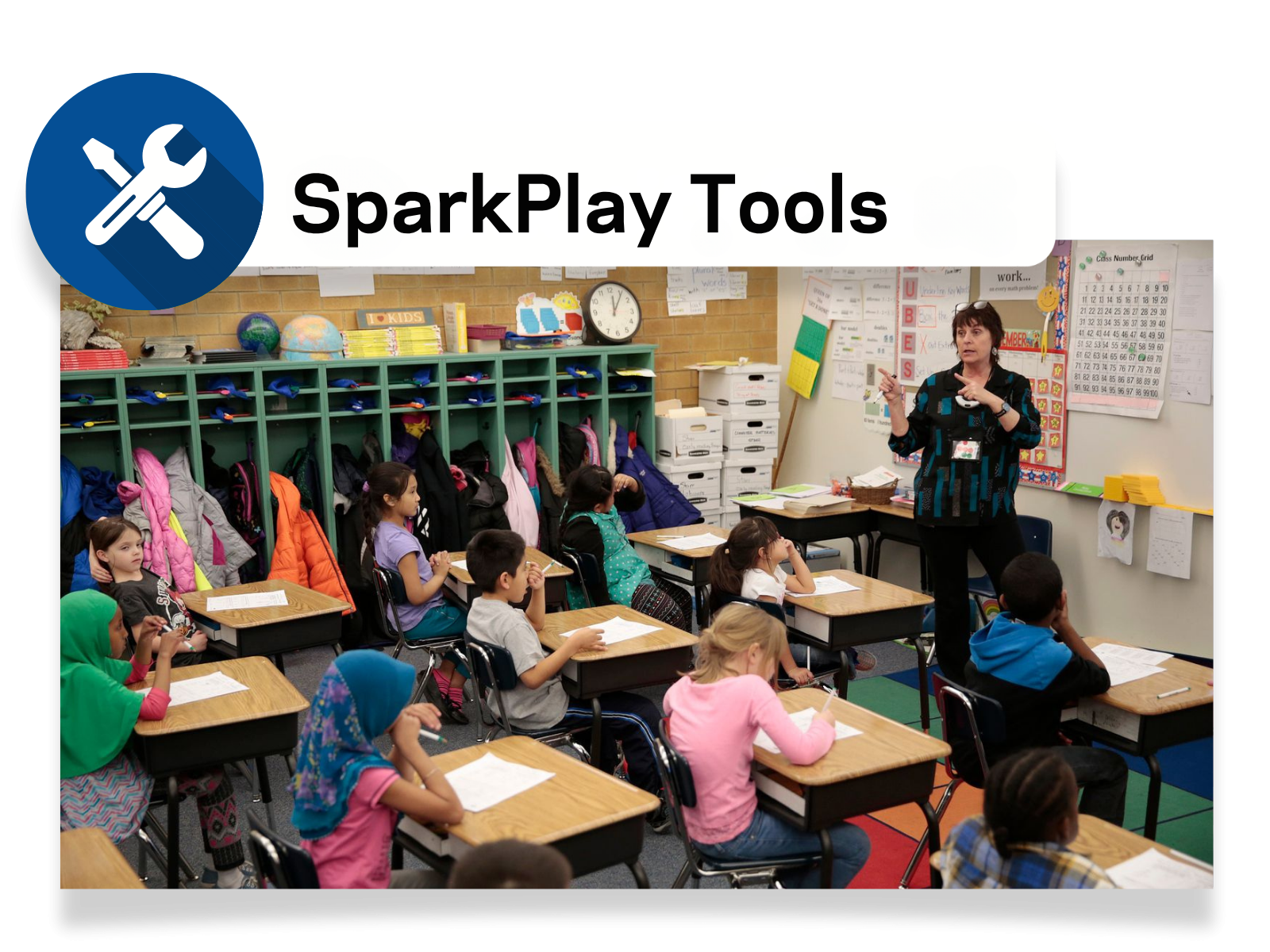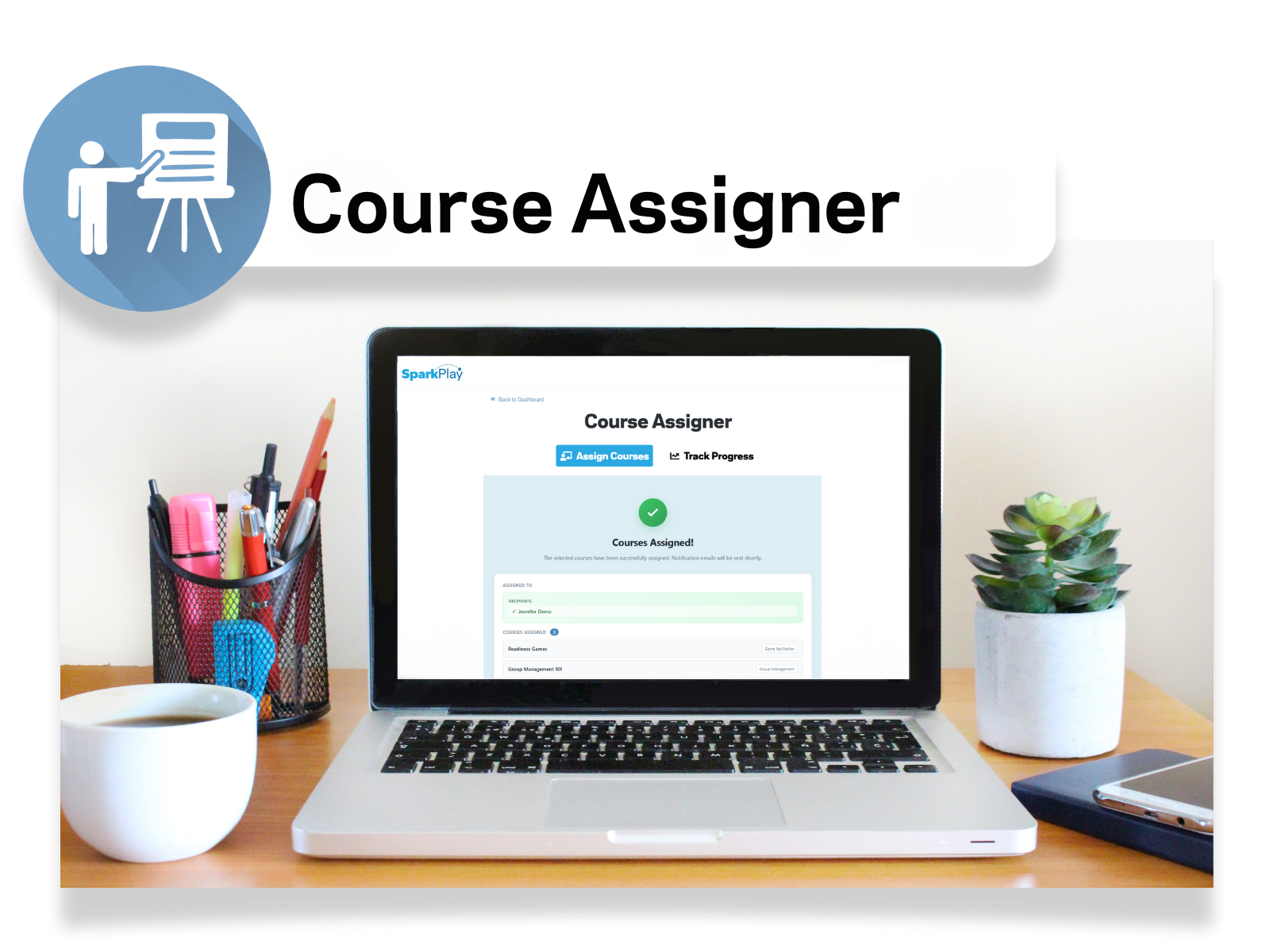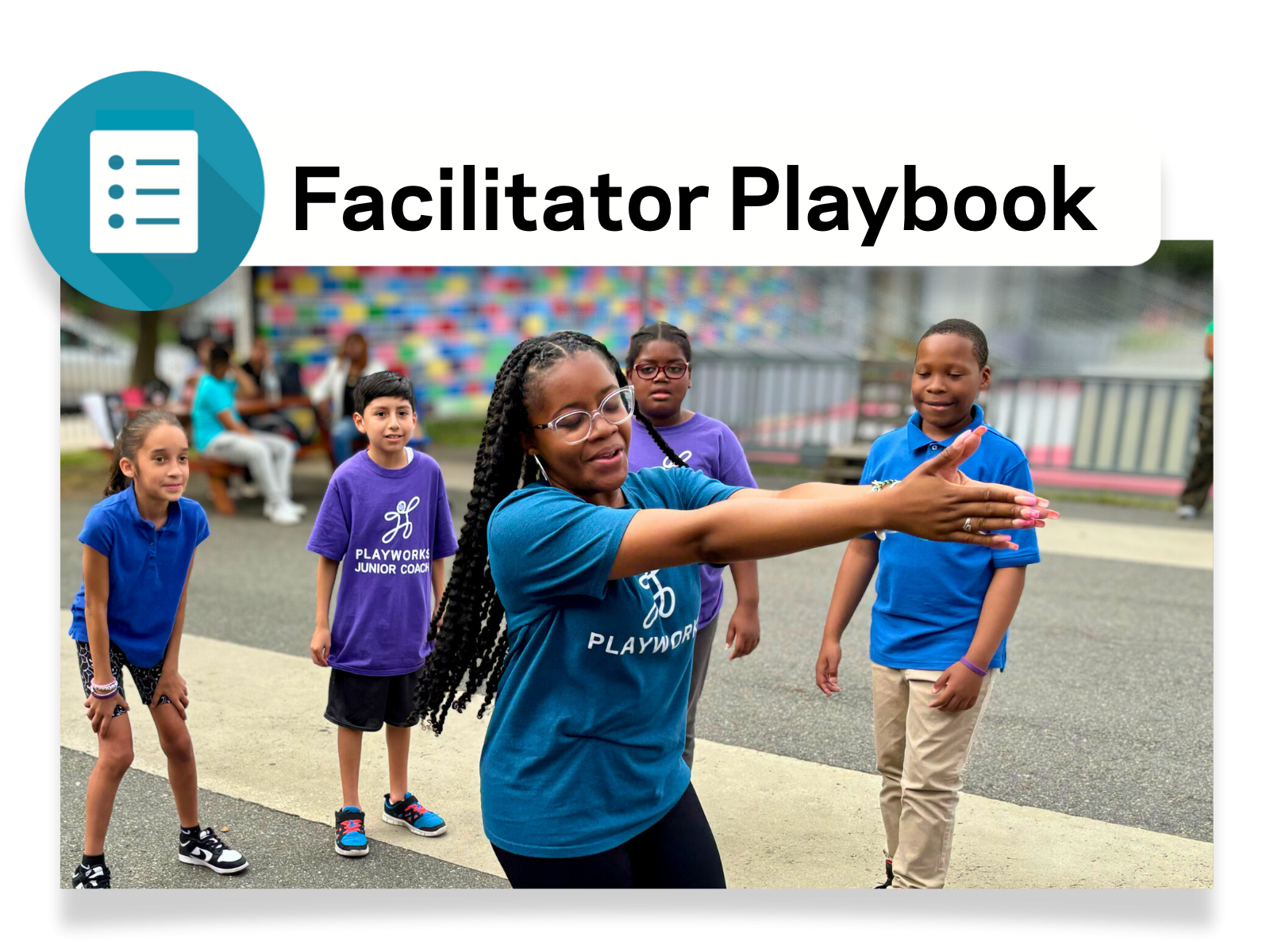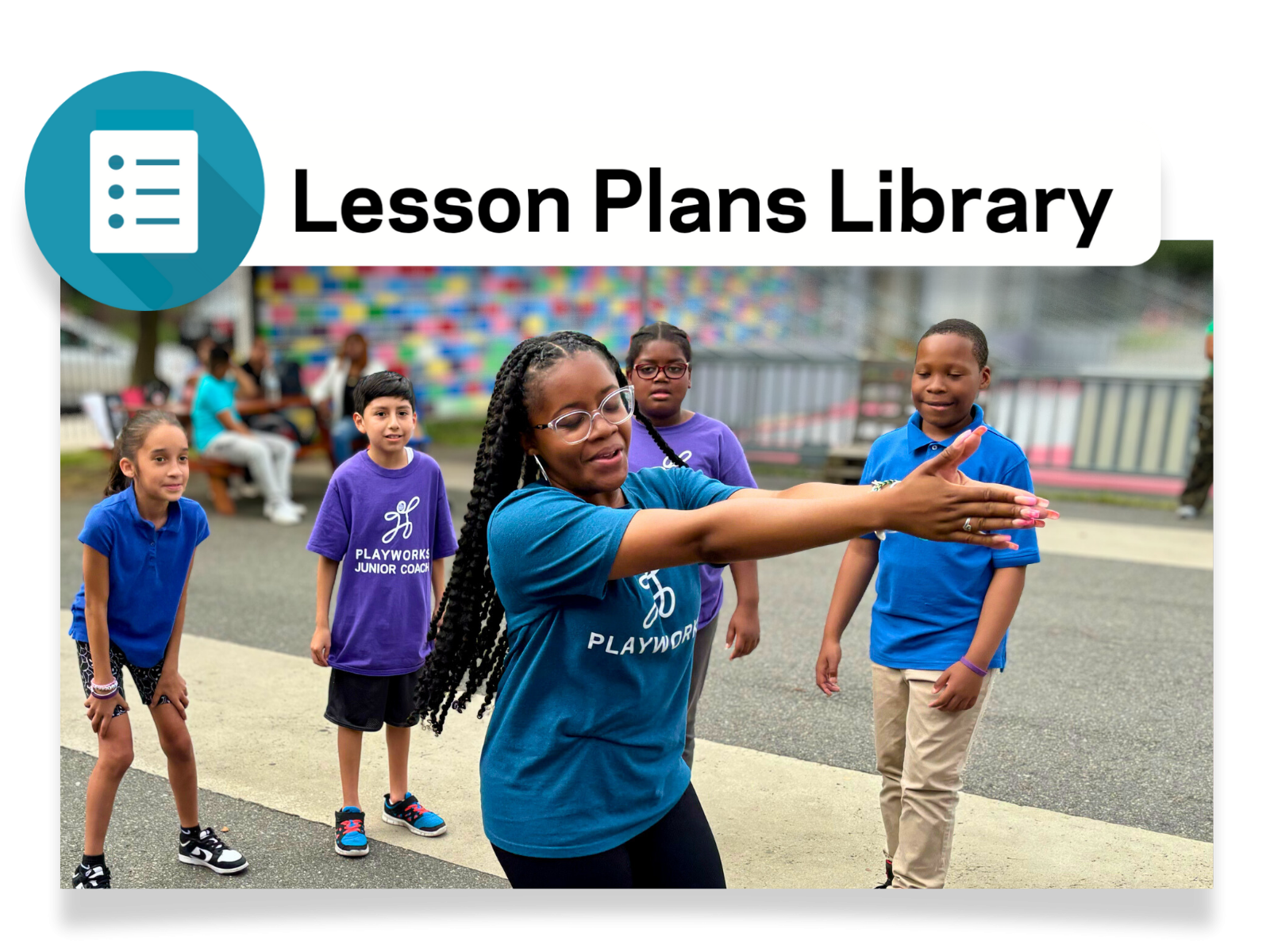
You can bring out the best in kids through play.
It all starts with a spark.
For nearly 30 years, Playworks has been working toward a vision that one day, every child in America will get to play every day. We partner with elementary schools, districts, and community-based organizations to bring games and youth development practices to enable kids to get active and develop valuable skills that help them thrive in and out of the classroom.
The results are in ...
In just 10 minutes a day, our Playworks Foundations certificate program will give you the tools and strategies you need, including:
Transition time
Bullying reports
Sense of safety
Physical activity
Play helps us...
Get physically active
Empty space, drag to resize
Help kids get and stay active & build social skills, all while increasing play-time safety.
Empty space, drag to resize
Strengthen academic motivation
Empty space, drag to resize
Improve behavior, streamline transitions, prevent injuries, & improve learning outcomes.
Empty space, drag to resize
Develop valuable lifelong skills like cooperation and teamwork
Empty space, drag to resize
Engage kids with curated games you can start using immediately.
Empty space, drag to resize
Together, we can maximize playtime and enhance play systems that will work for you and your students.
Studies show that the Playworks approach contributes to positive experiences for kids and staff alike. Compared to the average school, Playworks schools report...
Dashboard
Welcome, !
Welcome, !
Where would you like to go?

Empty space, drag to resize
Copyright © 2025 Playworks.
Write your awesome label here.
Games Library:
Quick Tips
Looking to build skills? We've got you covered.
Find games that support skill development
Select a skill focus from the list below, then copy and paste it into the search bar to see games that develop that skill.
-
Accepting Help
-
Accurate Self Perception
-
Active Listening
-
Analyzing Solutions
-
Building Community
-
Communication
-
Conflict Resolution
-
Cooperation
-
Empathy
-
Ethical Responsibility
-
Growth Mindset
-
Identifying Characteristics
-
Identifying Emotions
-
Identifying Problems
-
Impulse Control
-
Integrity
-
Offering Help
-
Personal Responsibility
-
Perspective Taking
-
Physical Self Awareness
-
Playing Fair
-
Positive Language
-
Problem Solving
-
Relationship Skills
-
Resilience
-
Respect
-
Responsible Decision Making
-
Self Awareness
-
Self Confidence
-
Self Management
-
Self Motivation
-
Social Awareness
-
Social Engagement
-
Stress Management
-
Teamwork
-
Understanding Consequences
-
Using Your Voice
Limited on equipment? No problem!
Find games that require specific equipment
Select an item from the list below, then copy and paste it into the search bar to see games that require that item.
-
Ball
-
Bandana
-
Baseball Bat
-
Base
-
Basketball
-
Beanbag
-
Bouncy Ball
-
Chair
-
Chalk
-
Cone
-
Dodgeball
-
Flag
-
Football
-
Frisbee
-
Hula Hoop
-
Jersey
-
Jump Rope
-
Kickball
-
Soccer Ball
-
Tennis Ball
-
Volleyball
-
Volleyball Net
-
No Equipment Required
Want to find a specific type of game?
Find specific game types
Select a game type from the list below, then copy and paste it into the search bar to see games of that type.
-
Autonomous/Self-Access Game
-
Ball Game
-
Cooperative Game
-
Core Game
-
Icebreaker Game
-
Indoor Game
-
Readiness Game
-
Recess Game
-
Rotational Game
-
Tag Game
Empty space, drag to resize
Facilitator Playbook:
Tips & Resources
Need help introducing games?
Use the 4P's Framework!
Playworks uses a framework called the 4 P’s to introduce games to students. We recommend using the 4 P’s when you introduce games to your youth so they are learning both the game rules and how to teach them to others.
Pre-Game
Review the name, goal, and basic rules of the game using the ABC method:
A - Attention Getters: Focus the group’s attention using a quick attention getter. (Example: If you can hear my voice…” or “When I say _, you say _.”)
B - Basic Rules: Focus the group’s attention using a quick attention getter. (Example: If you can hear my voice…” or “When I say _, you say _.”)
C - Call and Response: Check for understanding by asking a call-and-response question such as “Point to our boundary.
A - Attention Getters: Focus the group’s attention using a quick attention getter. (Example: If you can hear my voice…” or “When I say _, you say _.”)
B - Basic Rules: Focus the group’s attention using a quick attention getter. (Example: If you can hear my voice…” or “When I say _, you say _.”)
C - Call and Response: Check for understanding by asking a call-and-response question such as “Point to our boundary.
Practice
Test out the game with low stakes with a practice round to normalize forgetting or not understanding rules, asking questions, and implementing modifications.
Play
While you’re playing, continue to check on group engagement. How is the interest level? Are there rules to reiterate? Deciding when to end a game is also an important element of play, so monitor when it appears students are getting tired and/or losing interest.
Post-Game
Debrief or highlight relevant parts of the game related to your goals for playing using the What? So What? Now What? method:
What? - Recap the game.
So What? - How did it make you feel? Why is this important?
Now What? - What can we take from this game to support _ going forward?
What? - Recap the game.
So What? - How did it make you feel? Why is this important?
Now What? - What can we take from this game to support _ going forward?
For more information on the 4 P’s, visit the Game Facilitation 101 course in SparkPlay.
Want to keep games feeling fresh?
Implement a Game of the Week.
The lesson plans provided include suggested games and often refer to a Game of the Week. The Game of the Week is a large group game that rotates regularly to keep activities fresh. SparkPlay users subscribed to curated emails will get weekly emails with a suggested Game of the Week. Depending on your capacity, you may choose to rotate less frequently and refer to it by another name (e.g. Game of the Month).
Looking for more game ideas?
Discovery a variety of games in the Games resource.
Find games for different group ages, group sizes, equipment types, and school settings in this playbook, and many others here.
Need a refresher on Group Management?
Check out these SparkPlay courses.
Empty space, drag to resize
Facilitator Playbook:
Blank Lesson Plan
Create your own lesson plan using our template
Click below to download.
Empty space, drag to resize

